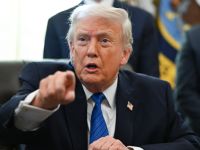A UN human rights panel appealed Friday for the lifting of some sanctions against Iraq, urging governments and Iraq to "alleviate the suffering", reported The Associated Press.
The 26-member UN Subcommission on Human Rights said "embargoes should be limited in time, should in no way affect innocent civilian populations and, for obvious humanitarian reasons, should be lifted even if the legitimate objectives of the measures have not yet been attained."
The resolution, passed without a vote, appealed to the UN Security Council "for the embargo provisions affecting the humanitarian situation of the population of Iraq to be lifted," said the agency.
It urged "the international community and all governments, including that of Iraq, to alleviate the suffering of the Iraqi population, in particular by facilitating the delivery of food, medical supplies and the wherewithal to meet their basic needs."
Strict trade sanctions imposed after Iraq's 1990 invasion of Kuwait are being kept in place until UN inspectors certify that Iraq is free of weapons of mass destruction.
Aid distribution under the oil-for-food program, which allows Iraq to sell limited amounts of oil in order to buy humanitarian goods, has been plagued by delays.
The agency added that a report to the UN rights panel by Belgian law professor Marc Bossuyt, released earlier this week, said the sanctions were "unequivocally illegal" and caused "a humanitarian disaster."
But a US official on Thursday called those assertions "incorrect, biased and inflammatory."
George Moose, the US ambassador in Geneva, said the actions of Iraqi President Saddam Hussein's government, not 10 years of sanctions, caused the suffering of ordinary Iraqis.
Moose said the oil-for-food program is working, adding that the earlier dire situation arose because Iraq resisted the plan for five years, the AP added.
"Quite regardless of the government ... the rights of the people should be respected," said El-Hadji Guisse of Senegal, one of the UN panel's members.
"We're talking about a situation of violation of human rights where a population is endangered by international sanctions, and we just want to see more consideration and help for that population," he added - Albawaba.com
© 2000 Al Bawaba (www.albawaba.com)







